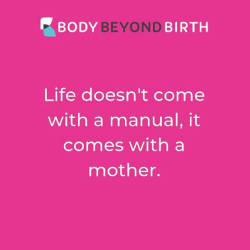Gestational Diabetes (GDM) is relatively common in pregnancy, occurring in approximately 5-10% of pregnancies. It occurs when hormones produced by the placenta interrupt the action of insulin. Insulin is the hormone that ‘unlocks’ the body’s cells so they can receive sugar from the bloodstream and use it for energy. If the cells aren’t “unlocked”, there is a backlog of sugar in the blood stream which is not healthy for mom or bub.
If you have been diagnosed with gestational diabetes, please make sure you get individualised advice from a dietitian to help you manage your needs. Every woman is different and there is no ‘one size fits all’ approach to managing gestation diabetes so I’m not going to go into details here but do want to make a few points.
- It’s not your fault that you have Gestational Diabetes.
I’ve heard many women blaming themselves for developing GDM. Often they will focus on a particular ‘sugary’ food or drink they had a lot of to manage morning sickness, sometimes they will blame their weight or pregnancy weight gain. But gestational diabetes effects women of all ages, shapes and sizes; women of different fitness levels and diet patterns. You didn’t do anything wrong and a lot of the risk factors are things you can’t change such as family history, ethnic background or past history of GDM. So, rather than worrying about what you did or didn’t do, try to just look forward to what you can do to manage it well.
- You don’t need special foods
A healthy diet for GDM will look very similar to that for a normal pregnancy, but with a little more attention payed to carbohydrate intake. The nutrient that has the biggest impact on blood sugars is carbohydrate. Check out ‘Carbohydrate friend or foe” for more information about the different sources of grain based carbohydrate but in GDM it’s important to consider all sources of carbohydrate including milk, yoghurt, custard, fruit and starchy vegetables and added sugars.
To help our body manage the carbohydrate that we need to eat we focus particularly on the amount and timing of carbohydrate intake. Avoiding very large amounts of carbohydrate foods at any one meal, and not going for too long without some carbohydrate is a good start. Make sure you include some carbohydrate at each meal and snack.
By testing your blood sugars regularly you will be able to find a carbohydrate pattern that suits your needs. Your activity levels, stature, schedule, hunger pattern, morning sickness and preferences all play a role in finding the right pattern for you. The attached sample meal plan gives you an idea of different ways you may spread your total carbohydrate exchanges out over the day.
- You don’t need a low carbohydrate diet.
There is a common misconception that because diabetes is a problem managing carbohydrate (that our body turns into blood sugar), that a low carbohydrate diet should be used. While low carbohydrate diets may have a place in managing some types of diabetes for some people, they are not recommended in pregnancy at all. Low carbohydrate diets put pregnant woman at risk of ‘ketosis’ which can be harmful to a developing baby. If each day you are eating close to the number of serves of food groups from the pregnancy portion planner, you will likely be getting a suitable amount of carbohydrate. Your best indicators that you are having adequate carbohydrate are good blood sugar levels and no ketones in your urine. You should be testing as often as your obstetrician or doctor recommends.
- You can exercise, in fact, it’s great!
Pregnant women are advised to aim for 30 minutes of moderate physical activity per day and regular physical activity has been associated with improved blood sugar control and lower insulin use in women with GDM. You do need to just be aware that exercise can lower your blood sugars, so some women will need to eat a bit more carbohydrate before, or shortly after, exercising. Gentle exercise can also be a healthy way to bring down blood sugars if you have eaten more carbohydrate than usual.
As with all health, there is no one size fits all. It is important that you seek individual advice from an Accredited Practicing Dietitian especially if you are having trouble keeping your BSLs within your target range, if you are regularly having ketones in your urine or if you are unsure confused about how much you should be eating.










